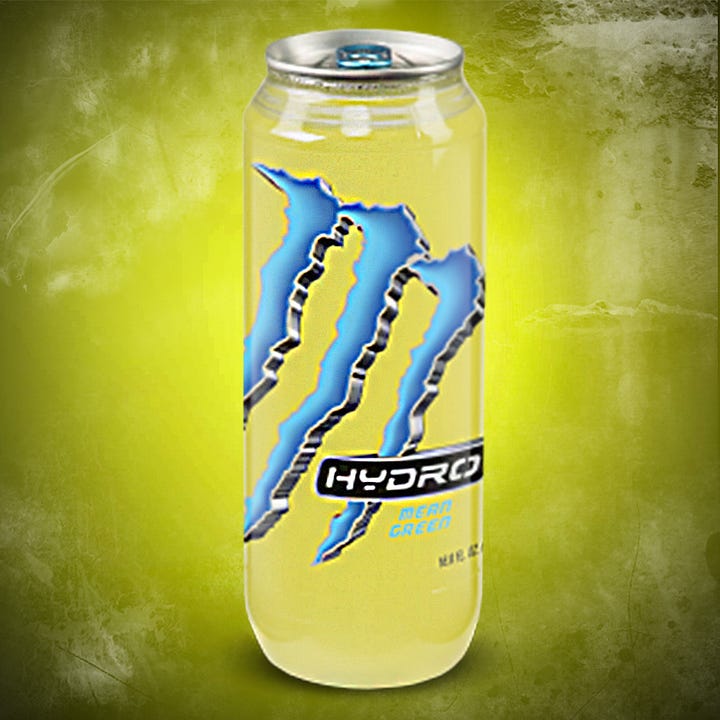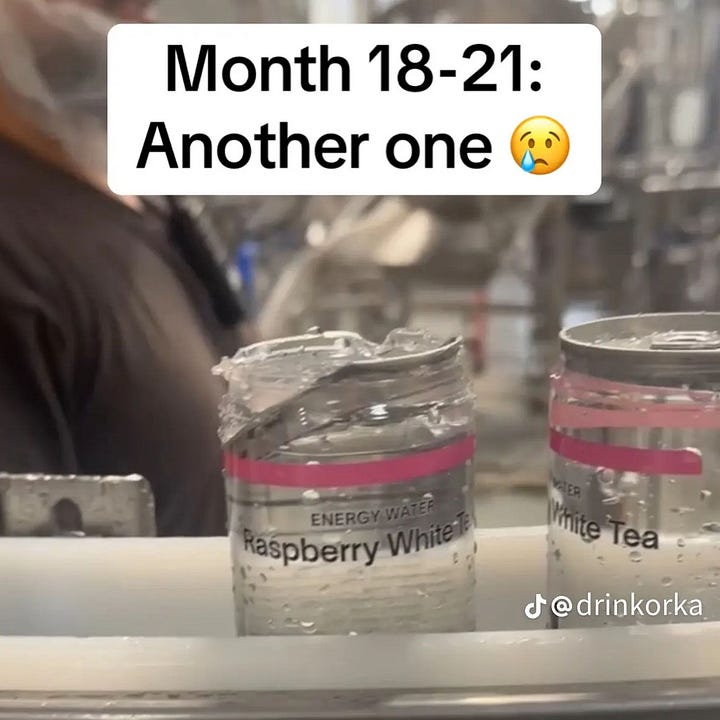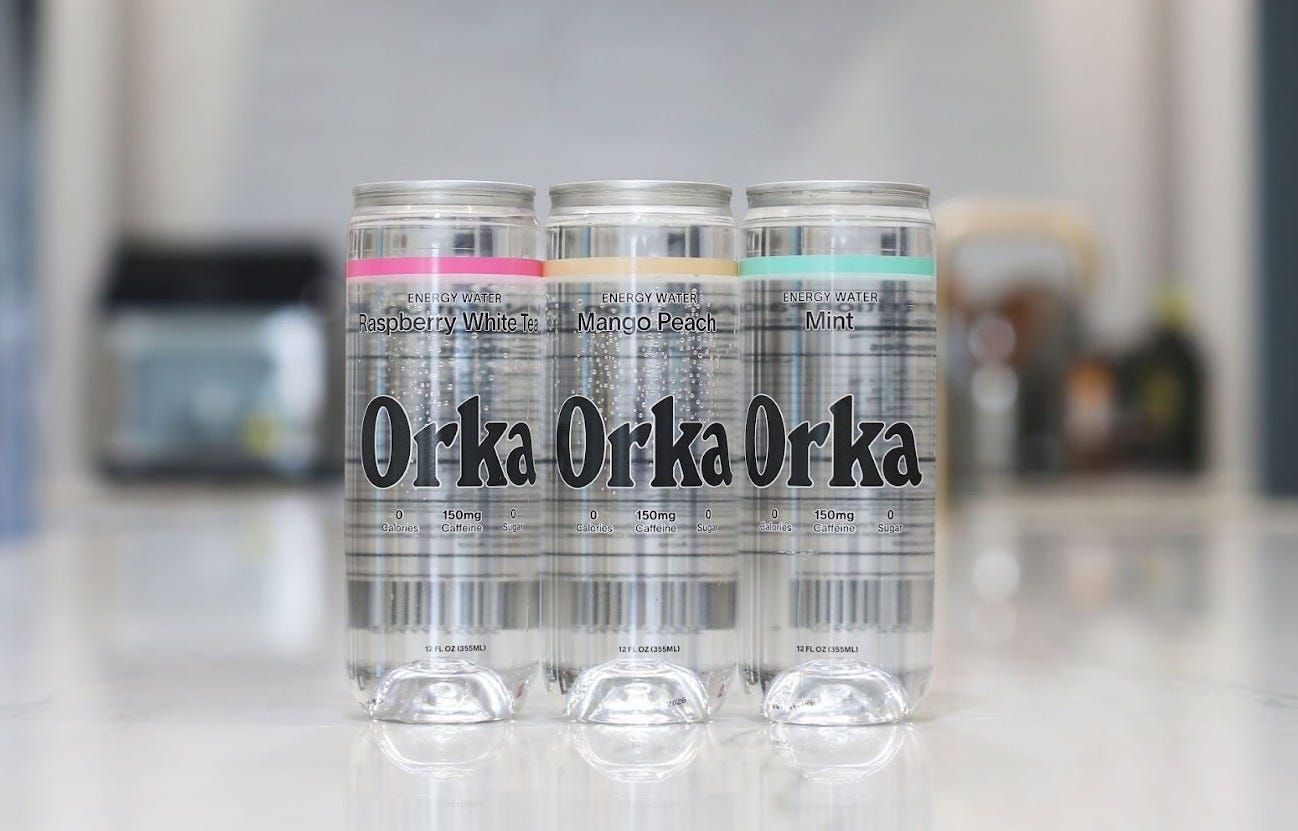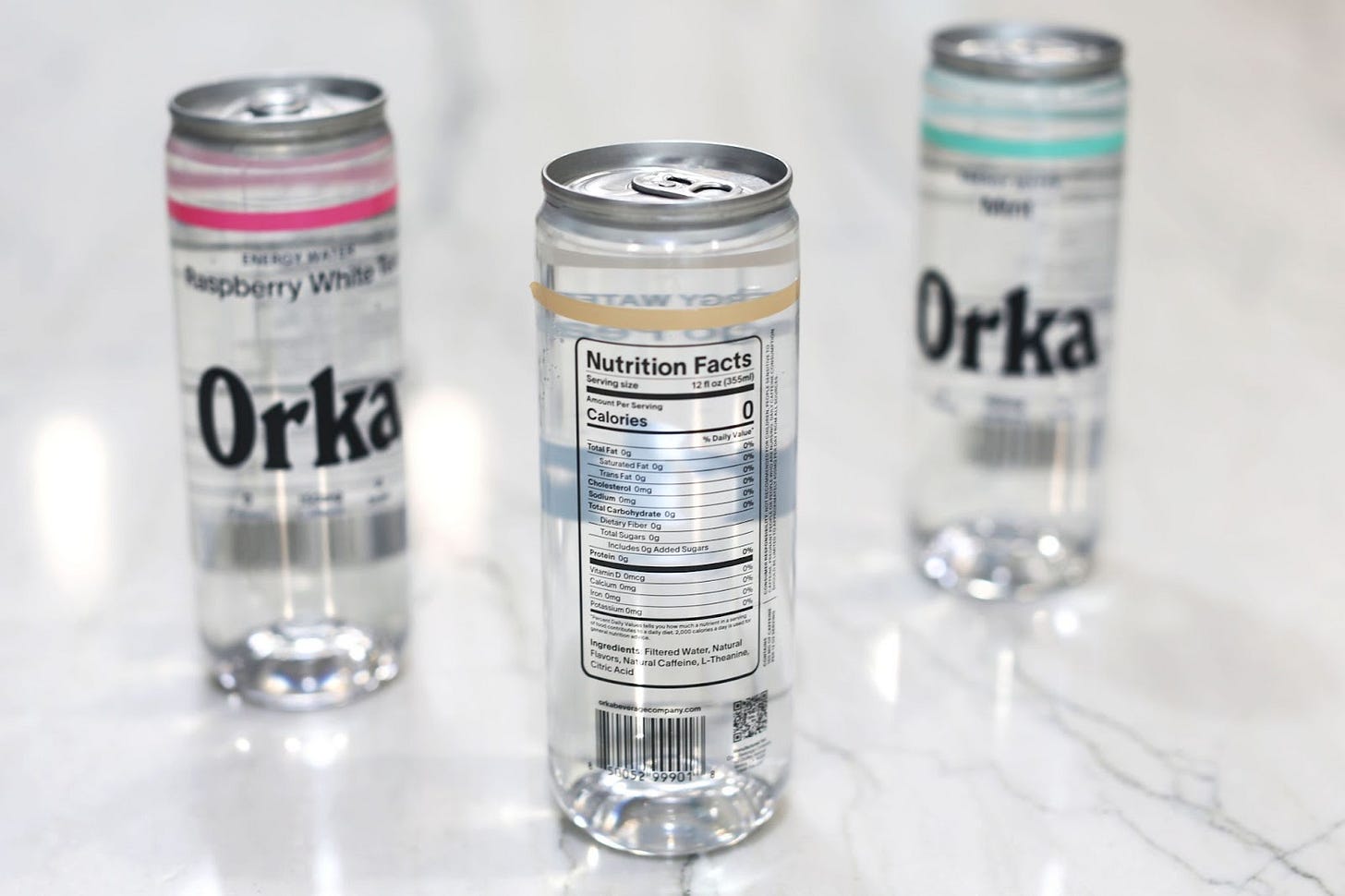Orka: The Clean Energy Resistance
Napoleon famously declared, “Great ambition is the passion of a great character. Those endowed with it may perform very good or very bad acts. All depends on the principles that direct them.”
Stick with us, folks. It will all make sense later on.
Since Red Bull hit U.S. shelves in 1997, the energy drink market has exploded. But as demand has grown, so has consumer discernment. Today’s buyers care just as much about what’s not in their drinks as what is—paving the way for wellness-first brands like Alani Nu, which carved out a niche among young, active women before catching the attention of Celsius in a $1.8 billion acquisition and a now combined $9 billion market cap.
In a category now being overtaken by “clean” energy drinks touting natural ingredients, zero sugar, and low calories, emerging brands have to do more than check the same boxes. They need to stand out. Enter a fascinating newcomer with a truly transparent set of principles directing them—launching in a clear can, and setting out to prove that vision, not volume, is what drives disruption.
Backstory
In 2021, Michael Moriarty and Nash Hale were working in tech and running on energy drinks to power their workdays. But even the “healthy” ones still tasted like candy and coffee was too intense. Could they just put caffeine in water and call it a day?
The former Georgetown classmates ran with that idea. A year later, they quit their jobs to start what would become Orka.
They spent the next year dialing in the formula. The goal? A drink so light it resembled water infused with just a hint of fruit—like what you’d find in a fancy hotel lobby. From there came logo and label design, incorporation, business plans, financials, roadmaps, and most importantly, the quest for their signature point of differentiation.
In September 2023, Orka’s founders joined the wave of startup storytelling on TikTok. Their debut video hit over 346,000 views, racked up hundreds of comments and shares—and then silence. Why? They didn’t have a product to sell yet. They did collect a sizable number of emails, but instead of riding a short-term spike, their socials went quiet to focus on building something worthy of the attention.
Energy Drink Water
What distinguishes Orka from most energy drinks is its minimalist approach to both formulation and flavor. While most products in the category lean hard into sweetness and artificial taste, Orka pushes the other way.
Each can contains five ingredients: purified water, 150mg of natural caffeine, L-theanine for smoother energy delivery, natural flavor, and citric acid. No sugar, no calories, no carbonation, and no artificial sweeteners. In fact, the entire nutrition label is a column of zeros. The stripped-down formula is designed to deliver clean energy without the baggage—and none of the aftertaste.
With caffeine as the core feature and an increasingly competitive set, energy brands are beginning to layer in storytelling and cultural heritage around the source of their caffeine. Yerba Mate, for example, touts the Atlantic Forest of South America origin of the like-named plant and its use by indigenous peoples to naturally energize.
Orka, which pairs its simple ingredients with understandably sparse details on their website, still devotes one of its two serious Frequently Asked Questions to the use of L-Theanine, citing its “naturally found in tea leaves that promotes focus and relaxation. Combining it with our natural caffeine gives you smooth energy without the jitters.”
I say “its two serious Frequently Asked Questions” because the remainder of the FAQs include a nuanced view of Napoleon's Russian campaign being doomed from the start, as well as a hot take that Katherine Heigl may be due for a comeback.
Seeking Clarity
The road to launching Orka wasn’t without its bumps The founders persevered to implement the one final touch that felt crucial to giving it the extra edge needed to cut through the noise. Operational challenges included five failed manufacturing attempts ,and according to a recent feature in the Wall Street Journal, the depletion of their $355,000 friends and family investment. These trevails showed why brands like Monster Energy may have bailed on similar efforts to sell a clear can in the US.


In March 2024, the dream became a reality and Orka made its debut on Amazon with three flavors: Mint, Raspberry White Tea, and Mango Peach. Its product page dives significantly deeper into Napoleon's failed attempt to invade Russia in 1812, reminding us that even the greatest ambitions can crumble against nature and resilience.
The TikTok account is back and firing on all cylinders with a humorous and often aggressive approach toward competitors, with products also stocked on the TikTok Shop for immediate conversions and the ability to partner with creators.
A video on March 3, 2025 featured their first professional spot, where an actress lays out the brand in about 8 seconds, then turns it over to actor and singer Cordin Bleu who spends the next nine minutes listing out every legally recognized road sign in the United States 😂.
The video attracted 614K views, which is impressive on its own, but was followed by an organic post on March 30th without any production crews or actors, that racked up 6.9 million views. Just two months into having available product, Orka has racked up over 41,000 TikTok followers.
Orka is doing what most brands cannot, letting their packaging innovation tell the liquid’s brand story. The clear can signals transparency, which translates into clean energy and greater trust from consumers, while the nutrition label backs it up. This isn’t another entrant chasing trends, it's a defiant swing at convention and numbers, that’s already turning heads. Their product is simple and speaks for itself, reminding us that what begins as a march for dominance can become a humbling reckoning.










